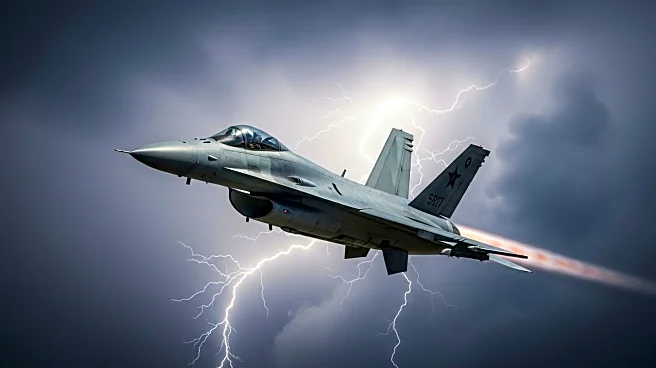What's Happening?
President Trump has confirmed a second U.S. military strike targeting alleged Venezuelan drug traffickers, resulting in the deaths of three individuals in international waters. This action is part of an ongoing campaign against what Trump describes as 'violent drug trafficking cartels' from Venezuela. The strike follows a previous operation on September 2, which killed 11 alleged members of the Tren da Aragua cartel. The operations have sparked bipartisan concerns regarding the legal basis for such military actions, with lawmakers questioning the lack of due process and the absence of congressional authorization for military force in these instances.
Why It's Important?
The strikes highlight the Trump administration's aggressive stance on drug trafficking, particularly in the Caribbean region. While the operations aim to curb the flow of illegal narcotics into the U.S., they raise significant legal and ethical questions about the use of military force in law enforcement missions. Critics argue that these actions could undermine international law and set a precedent for bypassing due process. The strikes also reflect a broader trend towards militarizing U.S. counterdrug efforts, which could have implications for U.S.-Venezuela relations and regional stability.
What's Next?
The legal and political ramifications of these strikes are likely to unfold in the coming weeks. Congress may seek to assert its authority over military actions, potentially leading to legislative or judicial challenges. The Trump administration may need to provide further justification for its actions, especially as international law experts criticize the legality of the strikes. Additionally, the administration's warning of potential future strikes suggests that similar operations could continue, prompting further scrutiny and debate over U.S. military involvement in counterdrug efforts.










